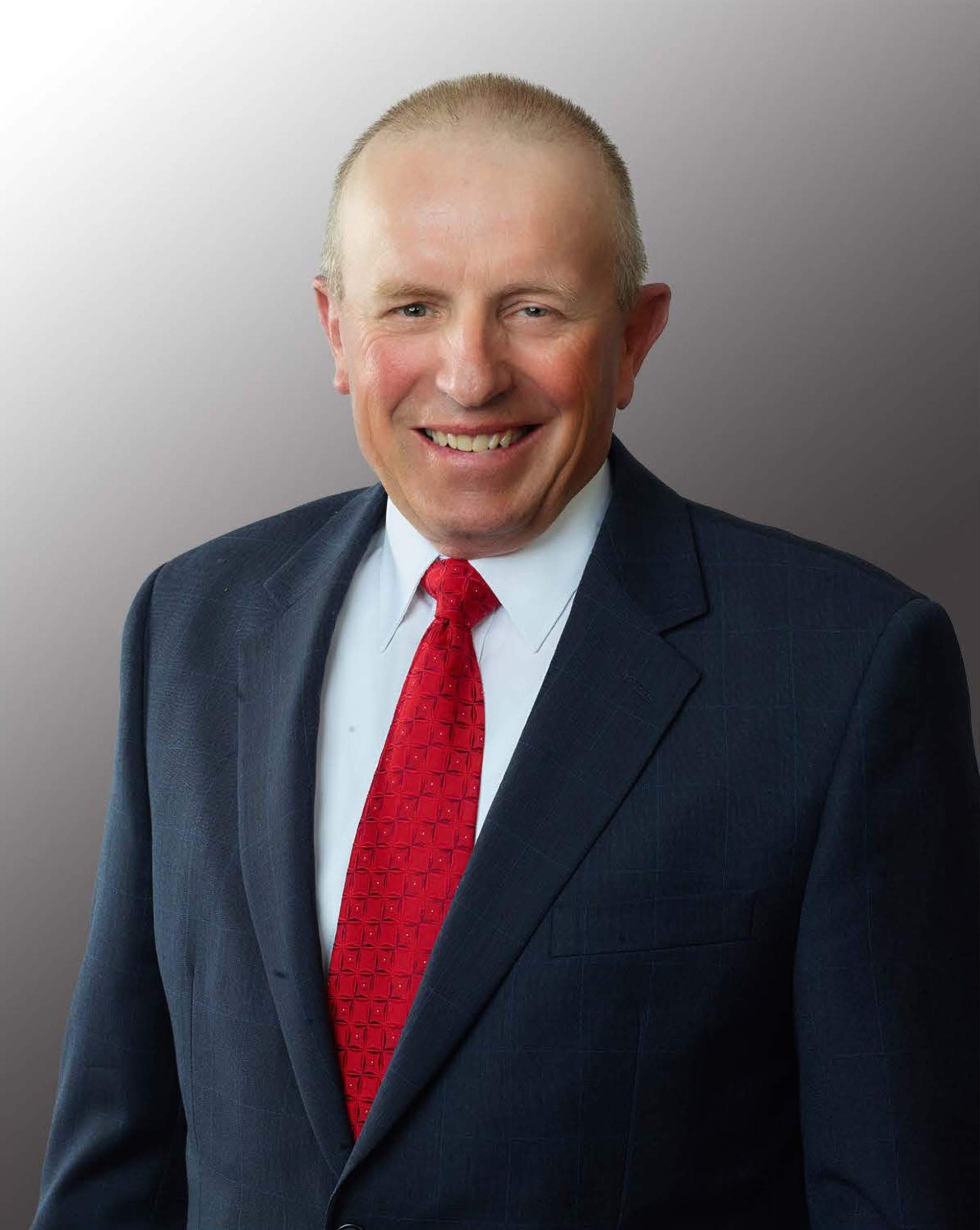Republican Utah House District 59 incumbent Mike Kohler arrived to an interview appearing less like a long-time politician and more like a long-time Midway local — jeans, a sweatshirt and a baseball cap. He explained he spent the morning working at his job with Midway Irrigation Company managing secondary water throughout the community.
The career makes sense for him, a generational farmer who sold his stake of his family’s dairy to his brother in the late ’90s. His lobbying work for the dairy industry and agricultural interests as an elected official are all indicative of someone who’s kept a close tie to agriculture.
Kohler grew up in Midway. He saw the community grow in the wake of the 2002 Olympic Games, and he saw it grow even more drastically during the COVID-19 pandemic.
Before running for a seat in the Utah House, he was a lobbyist for the dairy industry and served on the Wasatch County Council.
In 2020, he was elected to Utah House District 54 for the 2021 legislative session. After the state went through redistricting, he was elected to represent District 59 in the 2023 Utah House.
“I was a lobbyist prior,” Kohler said. “I actually represented the county because I was County Council, so I’d go and enjoy the processes on the state, and I know how much it can affect us, some of the decisions they make.”
As well as supporting agriculture through development easement purchases and greenbelt zoning options, Kohler said he hopes to keep community decision-making power in local hands.
Balancing state and local control
In his time working within state legislation — and looking back to some of the initiatives he was involved in back when he was an elected representative of Wasatch County — he listed several issues he’s felt he’s worked to help solve, but also a general concern that the state government has and continues to give itself too much control over what local counties and municipalities should be able to do.
“We try to micromanage the locals,” he said.
Over the last several years, Utah lawmakers have severely limited communities’ ability to require developers to allot a certain amount of moderate-income housing in their projects (House Bill 303 in 2022), pushed Summit County to potentially allow the widely controversial Dakota Pacific development (Senate Bill 84 in 2023) and has continually allowed quasi-government organizations such as Utah’s Military Installation Development Authority more and more authority.
Kohler said he pushed back on the state requiring Dakota Pacific and wanted to leave affordable housing in the hands of communities, but he did vote in favor of both S.B. 84 and H.B. 303.
Concerned with the possible consequences after S.B. 84 was passed, Summit County brought Dakota Pacific back to negotiations after filing a lawsuit against the development company and the state of Utah.
Kohler explained that he wasn’t aware of the problematic sections of S.B. 84, amendments that were made shortly before the bill was voted on, until after the vote had already taken place. Since then, he said he’s apologized to Summit County leaders for what he considers a mistake.
“I try to push for local control in Park City and Summit County, especially out there by Walmart and (S.R. 224), and some of that with Dakota Pacific has been a problem,” Kohler said. “I’ve been working with trying to keep the state legislature to leave it alone and let the process work and not try to play favorites, pick winners and stuff like that, and I think we’ve been somewhat successful.”
He also said he was one of the first Wasatch County councilors to invite MIDA to begin a project area by Jordanelle Reservoir.
“We had Jordanelle sitting up there with nothing happening,” Kohler said. “I figured if we could get them started in the limited way that they proposed at the time, one hotel, that maybe it could start a parade that everybody wanted to be in.”
Since his initial interest in the government entity — which uses tax increment funding from different groups and entities to promote military goals and push economic development in Utah — he has grown concerned over how powerful the group and its appointed board have become.
“They changed the assessment time from 25 years to 40, putting off paying locals back,” Kohler said. “I’ve tried to get more local control on those boards. … MIDA has expanded drastically.”
He shared similar worries over other groups in the state: the Point of the Mountain State Land Authority and Utah Inland Port Authority.
“I’m not sure I support the authority system as much as I used to,” Kohler said.
He stressed that if he could go back and decide to advocate for MIDA in Wasatch County again, he would. But he thinks local communities need more say and a faster investment when working with the institution.
Kohler also hopes to help Utahns with concerns over their property evaluations and subsequent taxes.
“It didn’t really get serious until the COVID move-in started changing our dynamic and running our prices up,” he said. “The differences and inconsistencies in property evaluation created some problems.”
He believes the Utah State Tax Commission needs to have a larger rule in helping local assessors ensure they do their jobs fairly.
Answering Monahan
When asked key differences between the two candidates, Kohler’s Democratic opponent, Julie Monahan, pointed out bills that service political cultural wars that she doesn’t think were real issues within the state. These included recent laws that restrict transgender individuals from using bathrooms in government facilities and allow a handful of school districts to ban a book in public schools throughout Utah.
Kohler said he believed that while many bills Utah’s legislature tackles are somewhat of a waste of time, some social issues should be addressed by the government, and he stood by his decision to vote for both of those bills.

